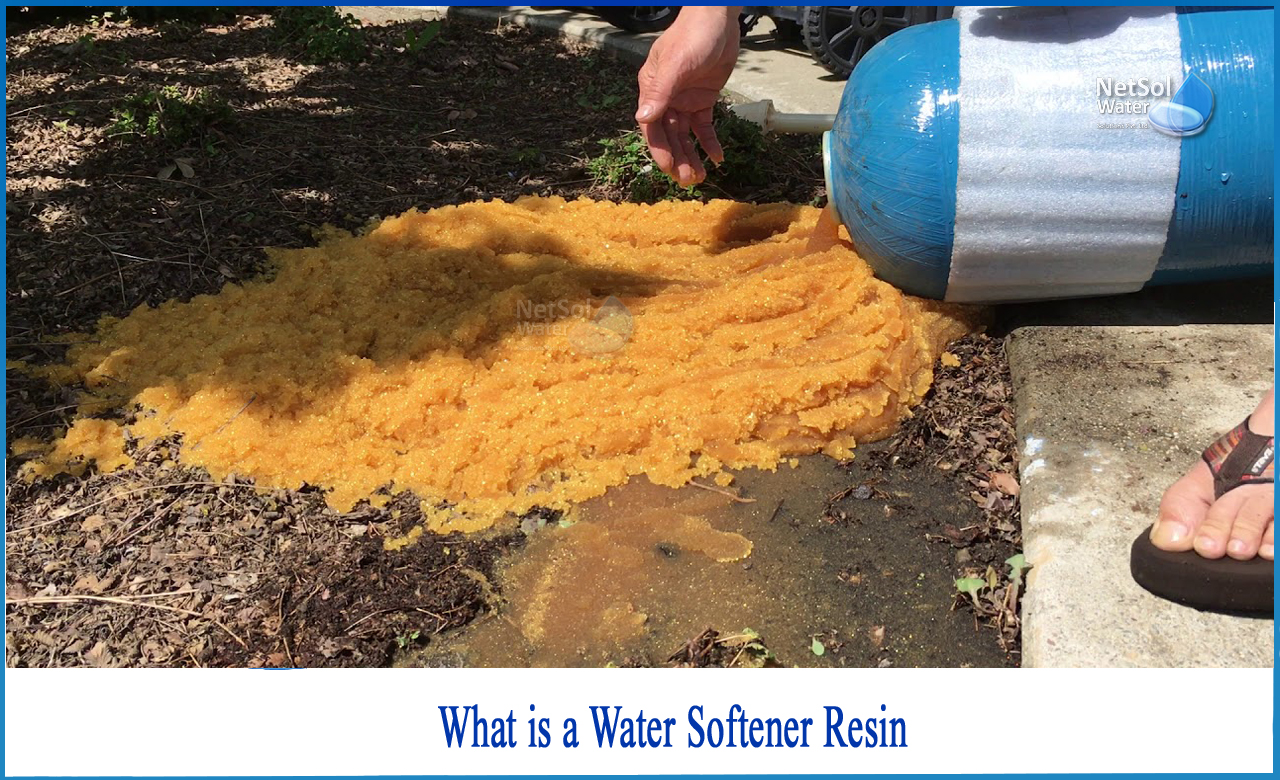What is a Water Softener Resin?
The major component of a water softener that turns hard water into soft water is the resin bed. It draws hard ions like magnesium and calcium and replaces them with soft ions like sodium.
A water softener resin resembles a bed of beads, with each bead ranging in size from 0.3 to 1.2 mm. Polystyrene, a form of plastic, and Divinylbenzene(DVB)are used to make the resin. DVB is a yellow liquid with a pungent odour that binds the resin bed together.
They resemble brown sugar granules in appearance. The resin in water softeners isn't poisonous, and the beads can't get out of the cylinder.
What is the mechanism of action of the resin?
The resins are negatively charged because they are charged with sodium ions. Calcium and magnesium minerals, which are positively charged, are found in hard water.
Water travels through a resin bed as it enters the mineral tank. The negative charge of the minerals is attracted to the positive charge of the resin bed because opposite charges attract. The mineral ions are captured by the resin beads, which then release sodium ions, softening the water. This soft water is dispensed through your faucets.
How Water Softeners use resins?
Before being packed into the water softener resin bed, the resin beads are pre-loaded with a covering of positively charged sodium ions to fulfil their part in the water softening process.
Hard water's calcium and magnesium ions are naturally positively charged. The hardness ions knock the sodium ions off the resin beads and adhere to the resin in their place as the supply water travels through the water softener tank and resin bed. After then, the sodium ions are released into the water.
The water softener must be able to get rid of the calcium and magnesium once it has acquired all of the resin beads completely covered with hardness ions in order to continue collecting more. This is when regeneration takes place.
During regeneration, the water softener uses a brine solution formed when salt, or sodium chloride, is supplied to the water softener to wash out the hardness mineral ions. As the salt water goes by, the positive charge of the resin is strong enough to break apart the sodium chloride compound, refilling the sodium layer back onto the resin bead and allowing the ion exchange process to resume.
Types of Water Softener Resins
1: Cation Resins:A cross-linked polymer containing negatively charged structural units is referred to as a cation-exchange resin.
The resin can exchange cations such as K+ for bound Na+ (Kayexalate) or Ca2+ (calcium resonium). The use of resins is intended to improve K+ excretion from the gastrointestinal system. Methacrylic acid, sulfonated styrene, and Divinylbenzene are commonly used (DVB).
2: Anion Resins:Strongly basic or mildly basic anion resins exist.
Strongly basic anion resins keep their negative charge over a large pH range, but weakly basic anion resins lose their negative charge at higher pH values. Because of deprotonation, weakly basic resins do not hold their charge at high pH. However, they have good mechanical and chemical stability. Weakly base anion resins are ideally suited for organic salts because of this, as well as a fast rate of ion exchange.
Regeneration of anion resins normally entails treating the resin with a strongly basic solution, such as aqueous sodium hydroxide. The regenerant chemical is passed through the resin during regeneration, flushing trapped negative ions out and replenishing the resin exchange capacity.
3: Mixed Bed Resins:Ion exchangers with both cation and anion resins combined in a single tank are known as mixed beds.
The resin bed is both H-OH form. These devices are usually built with all of the essential internals, instruments, components, and controls so that they may be controlled automatically.
Conclusion
Resins are employed extensively in a variety of separation, purification, and decontamination processes. In many cases, ion-exchange resins were used as a more flexible alternative to natural or artificial zeolites in such operations.
Advantages of softener resins
• Softens water, making it suitable for a variety of applications.
• Toxins are removed from the water.
• Prevents clogs and discoloration in pipes and fixtures.
• Makes water appliances more efficient.
What can we offer?
Netsol Water is a significant water and wastewater treatment firm in India, offering WTP, WWTP, STP, ETP, RO Plant, ZLD Plant, MBR, and Water Softener Plant manufacture, among other services. The company creates equipment’s and is committed to providing practical solutions that help businesses flourish. We are committed to providing our valued customers with hands-on service, expert counselling, and training.
Netsol Water is Greater Noida-based leading water & wastewater treatment plant manufacturer. We are industry's most demanding company based on client review and work quality. We are known as best commercial RO plant manufacturers, industrial RO plant manufacturer, sewage treatment plant manufacturer, Water Softener Plant Manufacturers and effluent treatment plant manufacturers. Apart from this 24x7 customer support is our USP. Call on +91-9650608473, or write us at enquiry@netsolwater.com for any support, inquiry or product-purchase related query.



